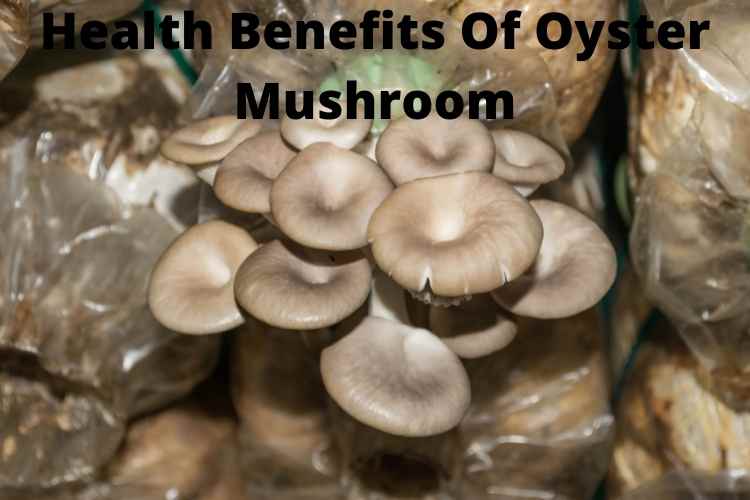Introduction –
Oyster mushrooms can be found growing on tree trunks and you will find them in forests and in temperate areas. Beloved in Japan, Korea and China; oyster mushrooms have mild flavor and complement a dish. Also, they’ve been used as a medicine for centuries especially for gut and overall health. As an edible fungus, oyster mushroom has been classified as a vegetable in world foods. In this article we are going to tell you the Health Benefits Of Oyster Mushroom, so read this blog to get the complete information. With huge medicinal and nutritional importance, this veggie fits in the sustainable farming system. It is highly rich in vitamins, minerals, protein, fibre and other antioxidants. Low in calories, fat, cholesterol, gluten and sodium, oyster mushrooms appear to reduce the risk of diabetes, obesity, cancer and heart issues.
Nutritional facts of Oyster mushroom –
A cup (86 grams) of raw oyster mushrooms contains:
- Energy: 28 kcal
- Protein: 3 grams (g)
- Carbs: 5 g
- Fiber: 2 g
- Fat: less than a gram
- Calcium: 3 milligrams (mg)
- Magnesium: 16 mg
- Potassium: 361 mg
- Cholesterol: absolutely zero
Nutritional benefits of Oyster Mushrooms –
Have a quick look of the nutritional benefits of oyster mushrooms:
- low in calories
- low in sodium
- gluten free
- fat and cholesterol free
- high in calcium and folic acid
- high in vitamins B1, B3, B5 & B12, C & vitamin D
- high in fiber, protein, zinc, iron,potassium, phosphorus & selenium
Medicinal benefits of Oyster Mushrooms –
Oyster mushrooms have the following medicinal properties:
- cholesterol lowering
- anti-oxidant
- anti-cancer
Also Read : – 5 Health Benefits of Drinking Filtered Water
Health benefits of oyster mushroom –
These come with potentially benefits that help us out on a variety of health matters:
1. Supports immune system –
Beta-glucans in oyster mushrooms help protect your immune system against short and long-term illnesses. Also, the vegetable is loaded with antioxidants to help prevent free radical damage and oxidative stress against aging.
2. Loaded with antioxidants–
Oyster mushroom helps to prevent cell damage as well as diseases liked iabetes, cancer, heart problems, Alzheimer’s and Parkinson’s.
3. Lower blood sugar levels –
There is evidence that oyster mushrooms may help fight insulin resistance and keep the glucose levels in your blood in a healthy range.
4. Kind to your heart –
Studies have shown that beta-glucan present in oyster mushrooms may help to improve glucose, fat metabolism, blood pressure as well as body weight. Definitely, it will help the heart and enhance fiber content in your body.
5. Lower cancer risk –
Researchers assume that oyster mushrooms help treat cancerous cells as they are filled with natural antioxidants.
6. Build strong bones –
Oyster mushrooms have plenty of important nutrients including vitamin D and magnesium for building strong bones.
7. Antiviral and antibacterial properties –
Scientists claimed that oyster mushrooms show antiviral effects and can be used for treating viruses like herpes and the flu.
8. Anti-inflammatory properties –
Antioxidants and beta-glucans in oyster mushrooms make it a great food for lowering inflammation.
9. Defend against neurodegenerative diseases –
Oyster mushroom protects cells against oxidative stress and free radical damage. They have potential for defending against neurodegenerative diseases like Parkinson’s, Alzheimer’s and dementia.
10. Protect the heart against cardiovascular disease –
Ergothioneine in oyster mushrooms is an excellent amino acid for protecting the heart. It lowers the buildup of plaque and also the cholesterol levels.
How should you eat oyster mushrooms?
Oyster mushrooms are very easy to prepare and you can eat every part of them. They tend to have a metallic taste when eaten raw so try to cook them in either ways. Due to their popularity, they are grown all the year roundor you can also store them in your fridge in paper bags. Along with offering potential health benefits, oyster mushroomsalso have their culinary uses with versatility and deliciousness. Given are a few ways to include oyster mushrooms into your diet:
- Add veggies to soups, stews, and pasta and grain dishes.
- Use mushrooms in egg dishes likeomelets, frittatasand quiches.
- Grill mushrooms on skewers with vegetables, shrimp or chicken.
- Roast them in the oven and eat them as salad.
Adverse effects of oyster mushrooms –
People who consume certain types of edible mushrooms in large quantities may experience stomach problems likediarrhea, nausea or stomach issues. Some evidence suggests that taking oyster mushrooms in dietary supplements is not always safe for intake. It is always advisable to check with your doctor before adding oyster mushrooms to pregnant women and nursing mothers. Also, people with medical conditions should be concerned before taking oyster mushrooms. Try to limit the intake of oyster mushrooms; else you may face some minor issues like dizziness, abdominal pain, headache, diarrhea and loss of consciousness.
Bottom line –
The health benefits of oyster mushrooms have been appreciated in Asian cultures for thousands of years. The mushrooms are fully loaded with substantial long-term health benefits which aid everything from heart health, diabetes to cancer issues. You can enjoy oyster mushrooms for their subtle flavor and nutritional benefits which are high in vitamins and minerals.

